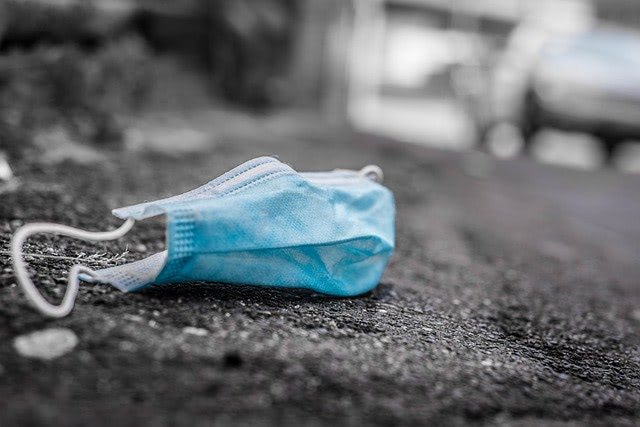Schools’ Covid-19 recovery funding ‘wiped out’ as a result of changes to pupil premium, NAHT reveals

Today (Thursday 18 March 2021), school leaders’ union NAHT is releasing new data that shows that the £6,000 average funding allocated to primary schools through the recently announced ‘recovery premium’ has been entirely wiped out for many schools because of a change in how the government calculates the number of children eligible for pupil premium funding.
Normally schools report the number of pupils they have who are eligible for pupil premium in January. But for the 20/21 academic year the government changed the date for this census to October. This means that any children who became eligible during the intervening time will not receive any extra funding until next year.
In a survey of NAHT’s school leader members last week, which received 1,316 responses, we asked ‘how many pupils in your school became eligible for pupil premium between the October and January census, and will therefore not receive pupil premium for 2021?’
62% of respondents had 5 or more pupils that had become eligible for pupil premium between the October and January census.
Currently, primary schools receive £1,345 for each child eligible for pupil premium, so the lost funding for 5 pupils is £6,725 – more than the £6,000 ‘catch-up’ funding allocated to primary schools on average.
That means almost two thirds of schools surveyed have been left worse off due to the change even after the latest education recovery funding is taken into account.
Speaking as the findings are presented at NAHT’s School Leaders’ Summit today, Paul Whiteman, NAHT general secretary, said:
“These figures suggest that a large number of schools in England have lost more funding due to this date change than they are being given in the government’s so-called education recovery package.
“The government is giving with one hand while knowingly taking away with the other.
“A 3 month gap may not seem like it would make a big difference but, given the volatile financial situation for many families due to Covid-19, it is an exceptionally bad time to implement this change. A significant number of children appear to have become eligible for help via pupil premium during that time and these children will now not receive any additional funding for another whole year.
“Worse, the children who are losing out are exactly those children most in need of additional support as they return to school.
“The government may say ‘no child left behind’, but with this simple ‘administrative tidy-up’ they have found a way to snatch back funding from schools and to further entrench educational disadvantage for the poorest families.
“We warned them that this could be the unintentional consequence of making this change during the pandemic, and we have raised our members’ concerns about the situation they now find themselves in repeatedly. But our warnings have fallen on deaf ears.
“In stark contrast to their promises to put children and young people at the heart of the pandemic recovery, the reality is that the government is taking funding away from schools, leaving them worse off at a time when they need every possible resource available to them to help the children that most need it.
“The government must put this right. We aren’t asking for additional money here. Only for what schools would have received if this census date change hadn’t been implemented. If they don’t they will be abandoning those children most in need at the most critical time.”
Cllr Judith Blake, Chair of the Local Government Association’s Children and Young People Board, said:
“It is imperative that no school should lose out in receiving Pupil Premium funding as a result of this administrative change, particularly in the context of the pandemic and the need to ensure pupils from disadvantaged backgrounds are supported to recover lost education.
“There will be many schools with children who will have become eligible for Pupil Premium between October and January who will now not qualify for this extra funding for a whole year.
“Schools need certainty that they will not lose out as soon as possible to ensure that no child is left behind.”
 Kate Green MP, Labour’s Shadow Education Secretary, said:
Kate Green MP, Labour’s Shadow Education Secretary, said:
“Ministers have failed to protect family finances from the impacts of the pandemic, but as more children have become eligible for extra funding to help them achieve at school, the Government is changing the criteria and making it harder for schools to support their pupils.
“Disadvantaged children are missing out on the Government’s tutoring programme which was only reaching 1 in every 200 students last month, and Ministers are compounding this failure with the risk that disadvantaged pupils will be left behind by the Government’s failed response to this pandemic.”
Pupil premium is extra funding provided to schools in England to help them improve the attainment of their disadvantaged pupils. Traditionally pupil funding from 1st April is calculated by a census of pupils taken in January that year. The Government has announced changes to this: “From April 2021, pupil premium allocations for mainstream and special schools will be calculated based on the number of eligible pupils recorded by schools in their census in October 2020.” Meaning that schools will not receive pupil premium funding for any pupil who became eligible between October 2020 and January 2021.
An NAHT survey with 1,316 responses found 62% of respondents had 5 or more pupils who become eligible for pupil premium between the October 2020 and January 2021 census.
Currently, primary schools receive £1,345 for each child eligible for pupil premium, so the lost funding for 5 pupils is £6,725 – more than the £6,000 ‘catch-up’ funding allocated to primary schools on average.
The National Audit Office has found that in February 2021: “Of the 125,200 children allocated a tutoring place, 41,100 had started to receive tuition, of whom 44% were eligible for pupil premium. This raises questions over the extent to which the scheme will reach the most disadvantaged children.”
33% of respondents had 10 or more pupils that had become eligible for pupil premium between the October and January census. 10% of respondents had 20 or more pupils that had become eligible.
NAHT’s School Leaders’ Summit 2021 is an all-day conference being held virtually on Thursday 18 March. Entitled ‘A Brighter Future for Education’ it looks at how education might emerge from the current pandemic. Keynote speakers include NAHT deputy general secretary Nick Brook, Steve Munby, David Weston and Liz Robinson.











Responses